AWM41 1028 - [Nurses Narratives] Sister Richmond - Part 2
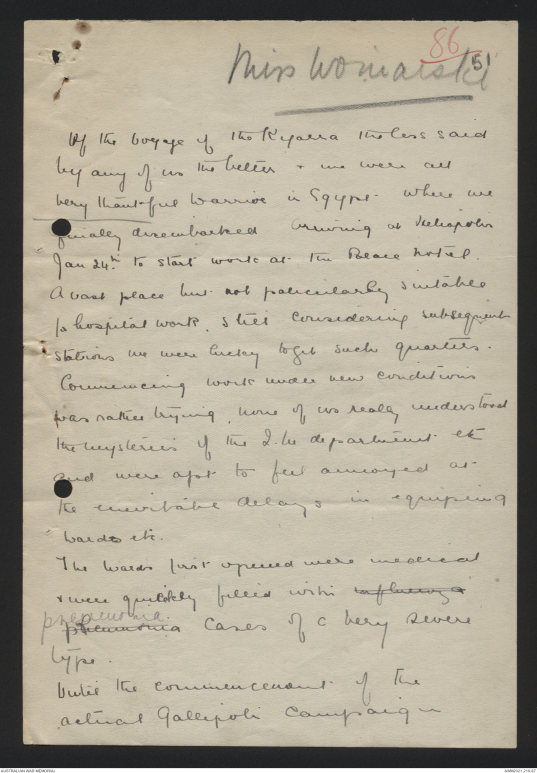
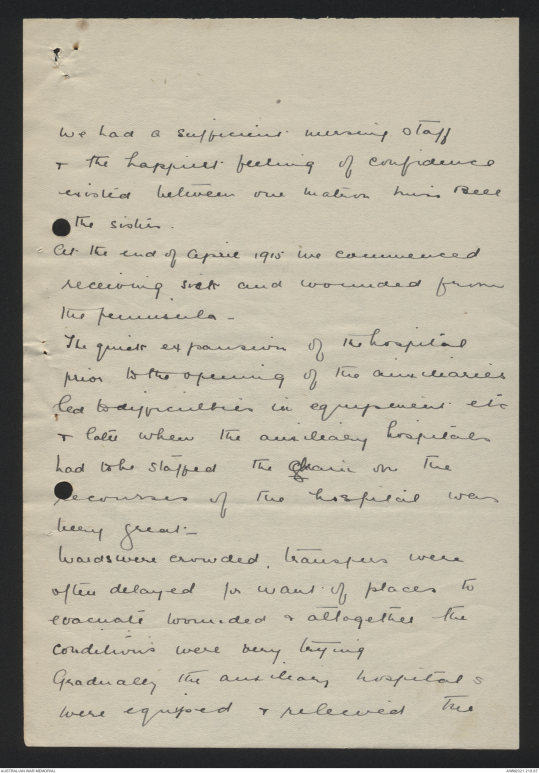
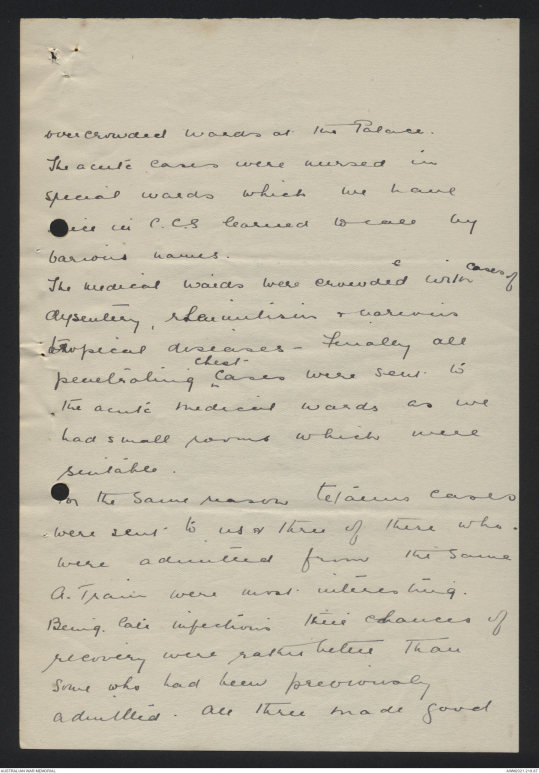
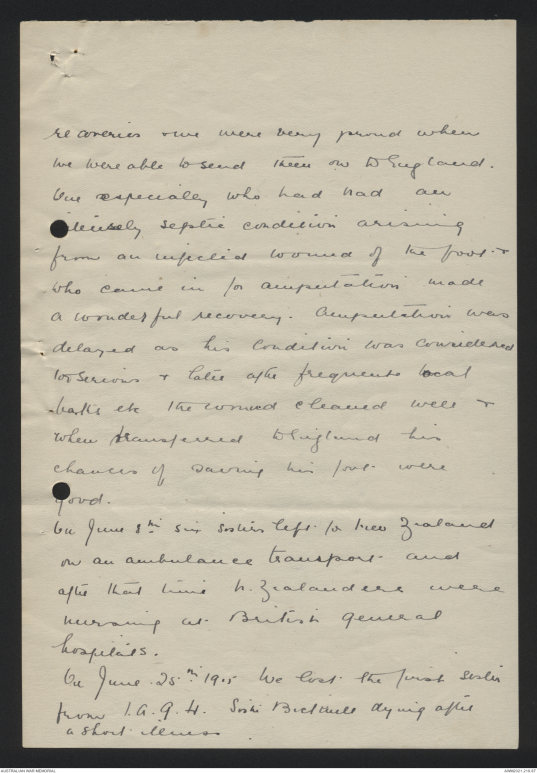
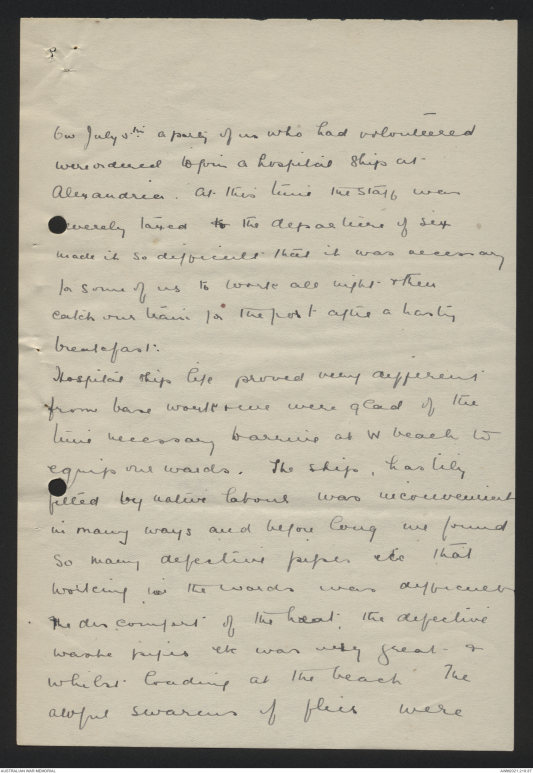
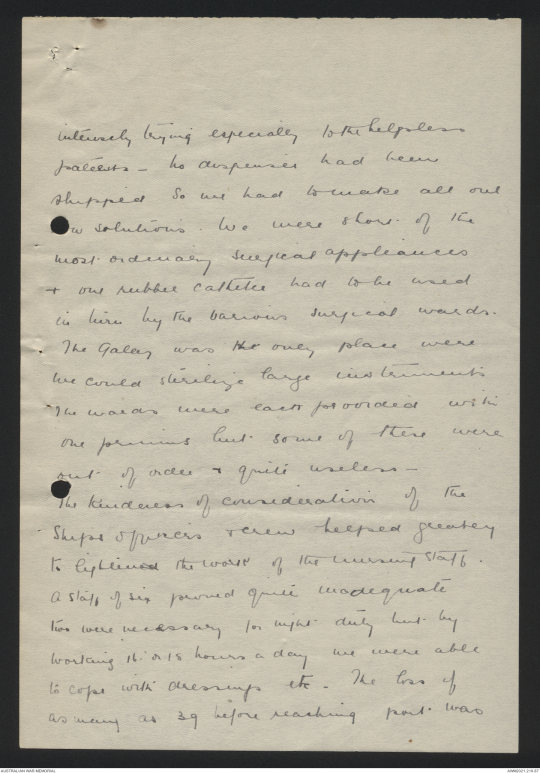
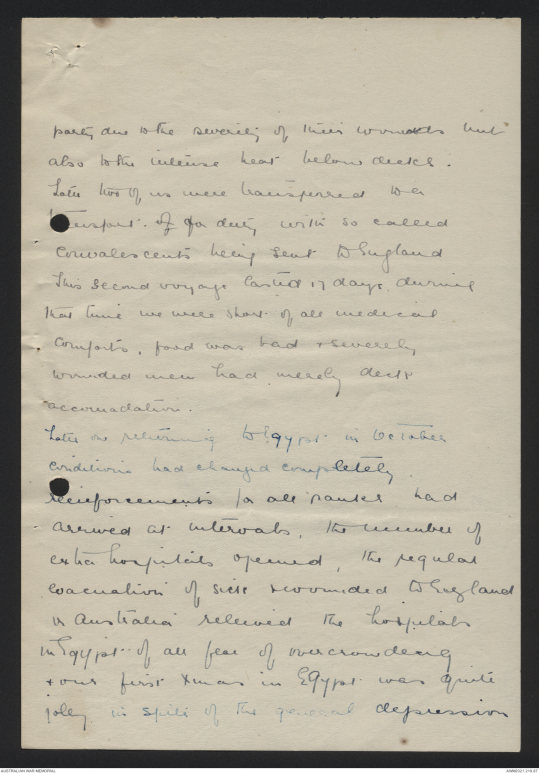
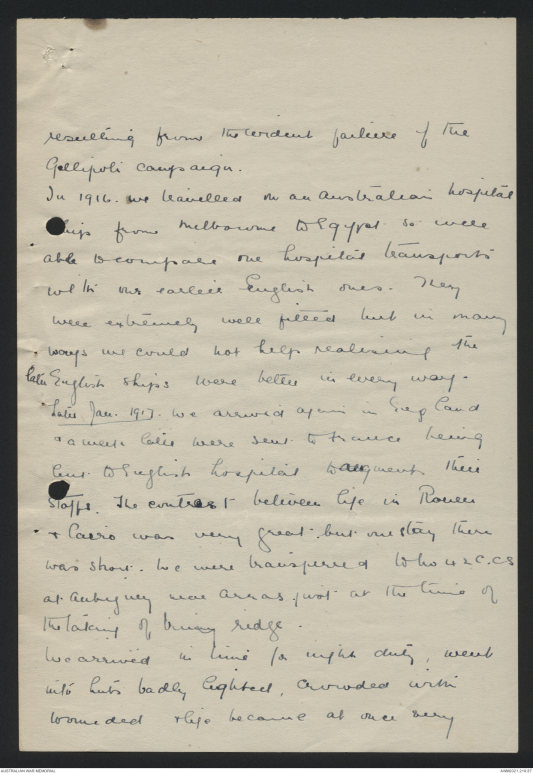
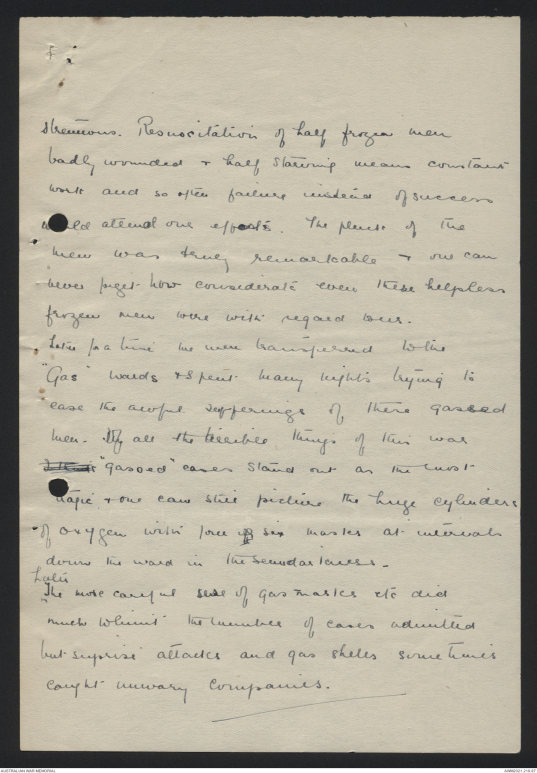
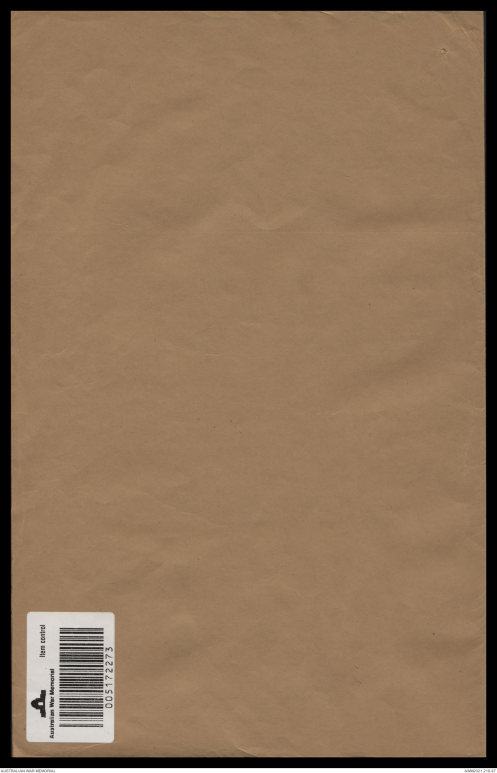
86/51
Miss Woniarski
Of the voyage of the Kyarra the less said
by any of us the better & we were all
very thankful to arrive in Egypt where we
finally disembarked arriving at Heliopolis
Jan 24th. to start work at the Palace Hotel.
A vast place but not particularly suitable
for hospital work. Still considering subsequent
stations we were lucky to get such quarters.
Commencing work under new conditions
was rather trying, none of us really understood
the mysteries of the [[?I.Lu]] department etc.
and were apt to feel annoyed at
the inevitable delays in equiping
wards etc.
The wards just opened were medical
& were quickly filled with influenzapneumonia pneumonia cases of a very severe
type.
Until the commencement of the
actual Gallipoli campaign
we had a sufficient nursing staff
& the happiest feeling of confidence
existed between our matron Miss Bell
the sisters.
At the end of April 1915 we commenced
receiving sick and wounded from
the peninsula.
The quick expansion of the hospital
prior to the opening of the auxiliaries
led to difficulties in equipment etc.
& later when the auxiliary hospitals
had to be staffed the drain on the
resources of the hospital was
very great. -
Wards were crowded, transfers were
often delayed for want of places to
evacuate wounded & altogether the
conditions were very trying
Gradually the auxiliary hospitals
were equiped & relieved the
overcrowded wards at the Palace.
The acute cases were nursed in
special wards which we have
[[?]] in C.C.S. learned to call by
various names.
The medical wards were crowded with cases of
dysentery, rheumitism & various
tropical diseases - Finally all
penetrating ^chest cases were sent to
the acute medical wards as we
had small rooms which were
suitable.
By the same reason tetanus cases
were sent to us & three of these who
were admitted from the same
A. Train were most interesting.
Being late infections their chances of
recovery were rather better than
some who had been previously
admitted. All three made great
recoveries & we were very proud when
we were able to send them on to England.
One especially who had had an
[[?sely]] septic condition arising
from an infected wound of the foot &
who came in for amputation made
a wonderful recovery. Amputation was
delayed as his condition was considered
not serious & later after frequent local
baths etc the wound cleaned well &
when transferred to England his
chances of saving his foot were
good.
On June 8th six sisters left for New Zealand
on an ambulance transport and
after that time N. Zealanders were
nursing at British general
hospitals.
On June 25th 1915 we lost the first sister
from I.A.G.H. Sister Bidwell dying after
a short illness.
On July 5th a party of us who had volunteered
were ordered to join a hospital ship at
Alexandria. At this time the Staff were
severely taxed to the departure of six
made it so difficult that it was necessary
for some of us to work all night & then
catch our train for the port after a hasty
breakfast.
Hospital ship life proved very different
from base work & we were glad of the
time necessary to arrive at W beach to
equip our wards. The ship, hastily
filled by native labour was inconvenient
in many ways and before long we found
so many defective pipes etc that
working in the wards was difficult.
The discomfort of the heat; the defective
waste pipes etc was very great &
whilst landing at the beach the
awful swarms of flies were
intensely trying especially to the helpless
patients - no dispenses had been
shipped so we had to make all our
new solutions. We were short of the
most ordinary surgical appliances
& one rubber catheter had to be used
in turn by the various surgical wards.
The Galley was the only place were
we could sterilize large instruments
The wards were each provided with
one primus but some of these were
out of order & quite useless -
The kindness of consideration of the
Ships officers & crew helped greatly
to lightened the work of the nursing staff.
A staff of six proved quite inadequate
two were necessary for night duty but by
working 16 or 18 hours a day we were able
to cope with dressings etc. The loss of
as many as 39 before reaching port was
partly due to the severity of their wounds but
also to the intense heat below decks.
Later two of us were transferred to a
transport of for duty with so called
convalescents being sent to England
This second voyage lasted 17 days during
that time we were short of all medical
comforts, food was bad & severely
wounded men had merely deck
accommodation.
Later on returning to Egypt in October
conditions had changed completely.
Reinforcements for all ranks had
arrived at intervals. The number of
extra hospitals opened, the regular
evacuation of sick & wounded to England
& Australia relieved the hospitals
in Egypt of all fear of overcrowding
& our first Xmas in Egypt was quite
jolly in spite of the general depression
resulting from the evident failure of the
Gallipoli campaign.
In 1916. we travelled in an Australian hospital
ship from Melbourne to Egypt so were
able to compare one hospital transports
with our earlier English ones. They
were extremely well fitted but in many
ways we could not help realising the
later English ships were better in every way.
Later Jan. 1917. we arrived again in Suez Canal
& a week later were sent to France being
lent to English hospital to augment their
staff. The contrast between life in Rouen
& Cairo was very great but our stay there
was short. We were transferred to No 42 C.C.S
at Aubigney near Arras just at the time of
the taking of Vinny ridge.
We arrived in time for night duty, went
into huts badly lighted, crowded with
wounded & life became at once very
strenuous. Resuscitation of half frozen men
badly wounded & half starving means constant
work and so often failure instead of success
[[would?]] attend our efforts. The pluck of the
men was truly remarkable & one can
never forget how considerate even these helpless
frozen men were with regard to us.
Later for a time we were transferred to the
"Gas" wards & spent many nights trying to
ease the awful sufferings of these gassed
men. By all the terrible things of this war
I think "gassed" cases stand out as the most
tragic & one can still picture the huge cylinders
of oxygen with four or six masks at intervals
down the ward in the [[serious?]] cases.
^Later the more careful use of gas masks etc did
much to limit the number of cases admitted
but surprise attacks and gas shells sometimes
caught unwary companies.
Item Control
Australian War Memorial
005172273
 Sam scott
Sam scottThis transcription item is now locked to you for editing. To release the lock either Save your changes or Cancel.
This lock will be automatically released after 60 minutes of inactivity.